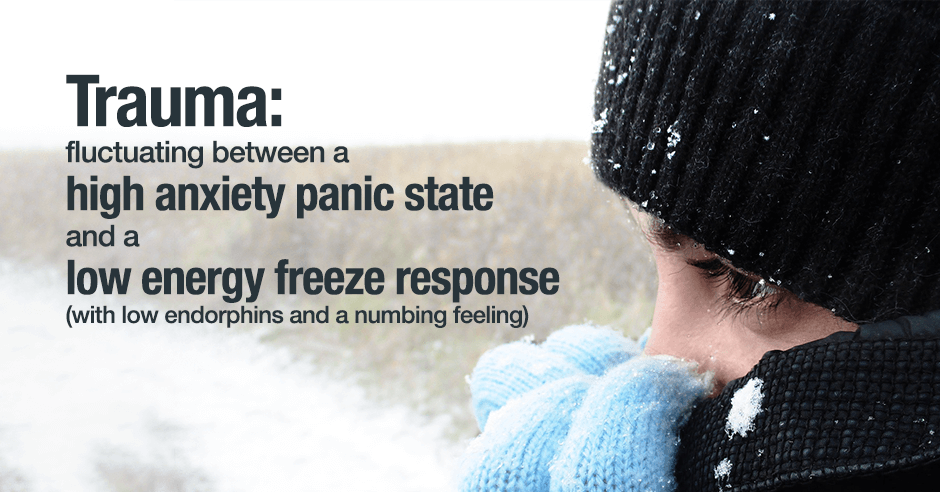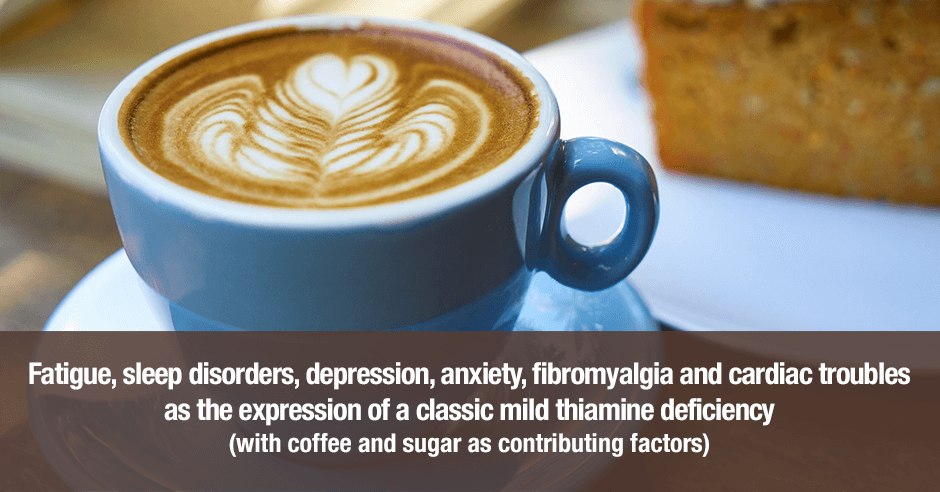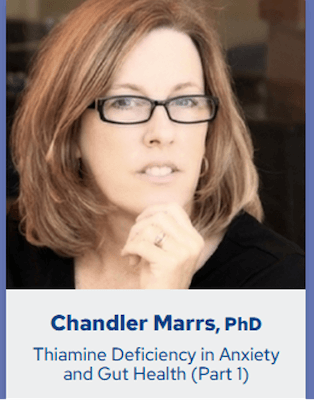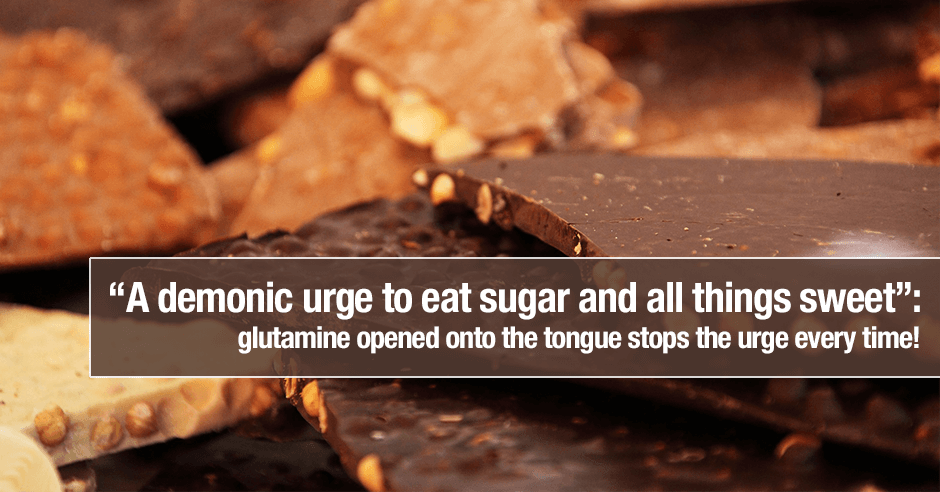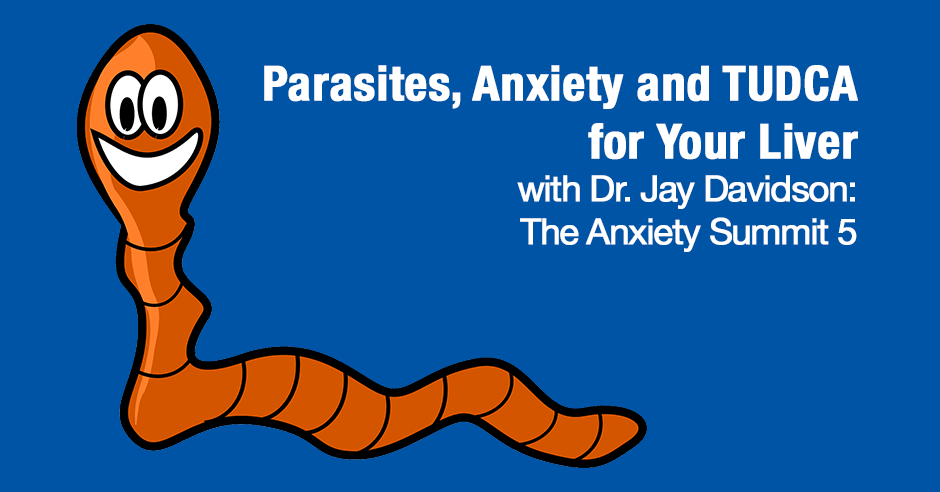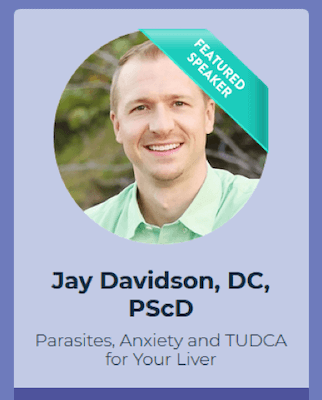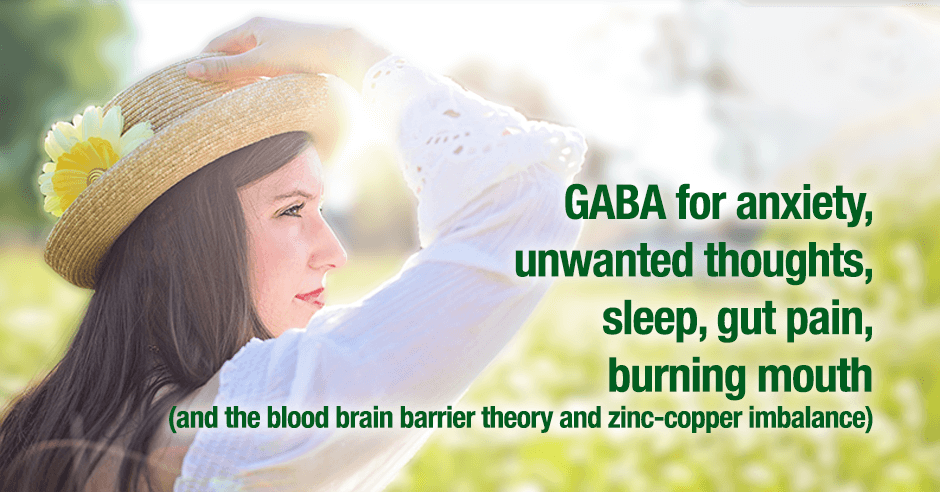
In the lead up to The Anxiety Summit 5: Gut-Brain Axis, Nov 8-14, 2021, today I am going to highlight GABA (gamma-aminobutyric acid), so you can really connect the dots and understand how far-reaching an impact this calming neurotransmitter has, and how important GABA is as an amino acid supplement.
Here are a few of the many interviews on the summit that feature GABA. Some of these gems come from the experts and some are from me helping to make the connections.
The GABA challenge for a leaky blood brain barrier: a theory
In my interview with Dr. Datis Kharrazian, Fix the Brain to Fix the Gut, we take a deep dive into his GABA Challenge for a leaky blood brain barrier and he shares how it is a theory and agrees that we still have much to learn about GABA:
- The GABA challenge test was based on the lactulose mannitol test which is a well-established test in gastroenterology for measuring leaky gut.
- He used GABA because the S100 B and blood brain permeability tests were not readily available at the time.
- The theory was that if GABA helped ease anxiety or improved sleep, the person had a leaky blood brain barrier because of the GABA particle size.
He is still always suspicious if someone takes GABA and they have a reaction and does always want to go and check the blood brain barrier too.
But Dr. Kharrazian agrees there may be other mechanisms at play: “there is actually the possibility of other pathways that can impact GABA, maybe directly to the gut itself, through the vagus, so I don’t discount those possibilities. The real answer is, we don’t know.”
I have deep respect for Dr. Kharrazian and appreciate having the opportunity to discuss this with him.
Estrogen dominance, low progesterone, zinc-copper balance, GABA and benzodiazepines
In my interview with Ann Louise Gittleman too, Bile: Key to Anxiety and Hormone Havoc, we talk about high estrogen, low progesterone, zinc-copper balance and GABA:
- Part of the whole issue with estrogen dominance is that we don’t have enough zinc in our diet and we need the zinc to make progesterone. We know that when we have a copper/zinc imbalance, with high copper and low zinc, we’re going to feel more anxious.
- And we need zinc in order to make GABA and other neurotransmitters like serotonin. We also need it to make progesterone.
- Damage to the liver and thyroid that was caused by fluoride was reversed by using the amino acid GABA.
Ann Louise also shares how GABA was a savior for her personally. After suffering from a very bad concussion and a bout with post-traumatic stress she eventually ended up on a benzodiazepine and GABA helped her get off it. The benzo “was very very toxic for my system because I don’t have all the detox pathways functioning the way they should. GABA was my savior. So I’m a big believer in GABA. And to this day, I still take 750 mg at night and in the morning.”
Mimosa pudica seed kills parasites and the whole plant extract modulates GABA
In my interview with Dr. Jay Davidson, Parasites, Anxiety and TUDCA for Your Liver, we take a deep dive into the role of parasites in anxiety and a product he uses for doing a parasite cleanse. Dr. Jay shares these gems about mimosa pudica seed:
- It is amazing for overall gut support: “So even if your goal isn’t a parasite cleanse, mimosa pudica seed is awesome to help support the digestive tract.”
- It can help break up biofilm.
- It’s really good against Candida
- It helps to normalize microbial levels within the GI system
And I share a study where the whole plant extract of mimosa pudica was found to help modulate GABA receptors. The study reported the benefits were very similar to one of the common antianxiety medications.
I would love to know if the seed has an impact on GABA levels too and will be digging into the research. I’ll share what I find in a follow-up blog post.
Lactobacillus rhamnosus (a probiotic) increases in GABA levels
In my interview with Dr. Peter Bongiorno, Gut-Brain Axis and Mental Health, he shares a mouse study that found Lactobacillus rhamnosus (a probiotic) led to increases in the calming neurotransmitter GABA:
- GABA is typically very low in people who have epilepsy and anxiety.
- “This study is showing us that you can actually increase GABA by just getting a good microbiota and getting the right strains of probiotics into your body.”
I love his description of how he thinks about this: “when the brain gets over-excited it’s like a calm blanket that sort of covers the brain and makes everything feel okay.”
Everyone who has benefited from the calming effects of GABA can relate to this.
GABA for gut pain, throat spasms, burning mouth, and anxiety and sleep
And finally, in my interview, GABA & Tryptophan: Gut-Anxiety Connections, I take a deep dive into all things GABA, sharing how low GABA plays a role in poor gut health and digestion:
- There is research that shows that low GABA may be a factor with the visceral pain we see with SIBO (small intestinal bacterial overgrowth) i.e. the bowels are very sensitive to the distention or stretch caused by bloating. Using a GABA supplement can help ease the pain very quickly.
- GABA supplementation also helps to relax throat spasms that we see with vagus nerve issues (I share my vagus nerve story and how GABA helped me).
- GABA supplementation helps with easing burning mouth syndrome which is very common in menopausal women.
I also go into how low levels of GABA cause physical anxiety and how to do a trial of GABA in order to ease anxiety quickly. I also share the following:
- Hippocampal GABA enables inhibitory control over unwanted thoughts
- A combination of GABA and theanine helps improve sleep problems
And I also go into the harmful effects of phenibut, which is often used instead of GABA. It can cause physical dependence and withdrawal issues similar to benzodiazepines.
Of course, I also share some of the profound benefits we see with GABA supplementation. One mom shared this about her daughter whose teachers were concerned about her ADHD and anxiety at school: “Since giving her GABA she has had amazing behavior at school and at home. She’s almost like a different child. GABA has truly changed her life.”
This is what we should expect. We want to have this wow effect!
These interviews dove-tail well with this topic and all tie back to and mention GABA, and anxiety and gut health:
- Achina P. Stein, DO, DFAPA, ABIHM, IFMCP – SSRI Impact on the Microbiome and Safe SSRI Tapering
- Hyla Cass, MD – Endocannabinoid System and Your Gut
- Magdalena Wszelaki – Herbs to Improve Digestion and Support GABA
- Chandler Marrs, PhD – Thiamine Deficiency in Anxiety and Gut Health (Part 1 & 2)
If this is the first time you’re hearing about the Anxiety Summit 5: Gut-Brain Axis, I encourage you to register and tune in if you have:
- Anxiety & feel overwhelmed & stressed by little things
- Panic attacks &/or obsessive thoughts or behaviors
- Social anxiety/pyroluria
- Phobias or fears (flying, spiders or even driving on a highway)
And also if you suffer from…
- Food sensitivities, IBS/SIBO, parasites or gallbladder issues
- Constipation, diarrhea, bloating, gas, pain & other digestive issues
- Leaky gut, a leaky blood-brain barrier or vagus nerve issues
Join us if you are also an emotional eater with intense sugar cravings (and know you suffer from low blood sugar), experience insomnia, low mood, PMS, poor focus and/or low motivation.
This is THE online event to learn about the powerful individual amino acids – GABA, theanine, tryptophan, 5-HTP, glutamine, DPA and tyrosine – to quickly ease anxiety and help with gut symptoms while you are dealing with other root causes which take longer to address. (They also help with cravings as with this example, and sleep and immunity).
With research-based anxiety nutritional solutions and practical steps, you can determine your root causes, ease your anxiety and prevent it from coming back so you can feel on top of the world again!
If you are a practitioner, please join us too and find advanced solutions for your clients or patients too!
You’ve heard me say the Anxiety Summit has been called “a bouquet of hope!” My wish for you is that this summit is your bouquet of hope!
I hope you’ll join me and these incredible speakers, be enlightened and find YOUR solutions!
If you’d like to find all the GABA mentions throughout the summit (or something else like serotonin or zinc etc), using the searchable PDF transcript is the easiest way to do this. This PDF is included when you purchase the series. If you’re thinking of making a purchase I encourage you to do so now before the prices increase.
Here’s to no more anxiety and you feeling on top of the world again!

